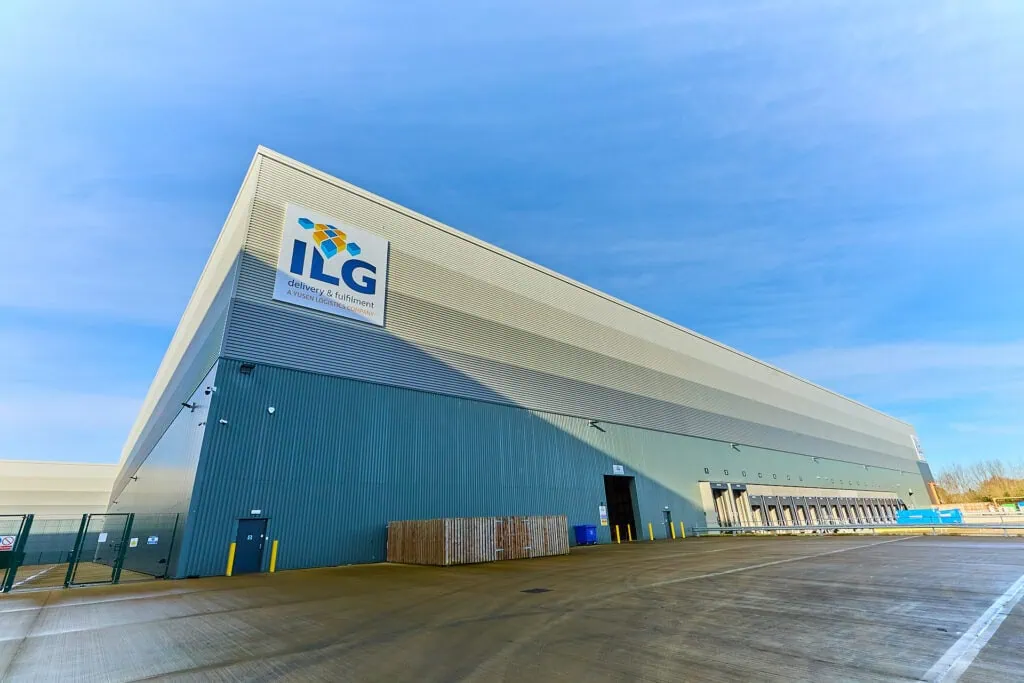
Peak trading periods, namely Black Friday, Cyber Monday and the festive season, represent a golden opportunity for e-commerce businesses. However, they also bring immense pressure and with it, the heightened risk of failed deliveries.
While the immediate impact of a failed delivery might seem like a minor inconvenience, the hidden costs can quickly erode profits and damage your brand’s reputation. We delve into these often-overlooked expenses and outline how a strategic approach, powered by advanced delivery management, can help you navigate Peak season successfully.
Jump to:
- The True Price of a Failed Delivery
- How a Managed Multi-Carrier Setup Reduces Risk and Cost
- Smart Tools for Real-Time Visibility and Proactive Issue Resolution
- Control Your Peak Season Deliveries and Reduce Risk With ILG
The True Price of a Failed Delivery
When a delivery goes awry, the ripple effect extends far beyond the initial shipping fee.
Consider these significant hidden costs:
Where Is My Order? (WISMO) Calls
A key indicator of delivery issues, WISMO (where is my order?) calls flood customer service lines, diverting valuable resources and increasing operational overhead. Each WISMO call can cost businesses an average of £5-£10 to handle, a figure that escalates dramatically during Peak periods when call volumes surge.
Returns and Refunds
Failed deliveries often lead to returns, even if the item eventually reaches the customer. The cost of processing returns, restocking and refund administration can be substantial. In 2025, e-commerce returns are projected to cost UK retailers over £60 billion annually, a significant portion of which can be attributed to initial delivery failures.
Lost Customer Lifetime Value
The most damaging hidden cost is the erosion of customer trust and loyalty. A negative delivery experience can deter repeat purchases and lead to customers seeking alternatives, impacting long-term revenue and brand advocacy.
Negative Reviews and Social Media Backlash
In today’s interconnected world, a single failed delivery can quickly escalate into widespread negative sentiment on social media and review platforms, tarnishing your brand’s image and deterring potential new customers.
How a Managed Multi-Carrier Setup Reduces Risk and Cost
The traditional approach of relying on a single carrier, or managing multiple carriers independently, significantly amplifies the risks associated with Peak season. A managed multi-carrier integration strategy, however, offers a robust solution. By partnering with a provider that offers a pre-integrated network of carriers, businesses can:
Diversify Risk
If one carrier experiences delays or capacity issues, orders can be seamlessly re-routed to alternative carriers, ensuring continuity of service and minimising disruptions.
Optimise for Performance and Cost
A managed platform intelligently selects the best carrier for each shipment based on factors like cost, speed and reliability, ensuring optimal performance even during high-demand periods.
Gain Centralised Control
Instead of juggling multiple carriers and contracts, a single partner provides a unified approach to simplify management and reduce administrative burden.
Smart Tools for Real-Time Visibility and Proactive Issue Resolution
Effective logistics software is crucial for mitigating the impact of failed deliveries. Modern delivery management platforms offer advanced features that provide real-time visibility and enable proactive issue resolution:
Real-Time Tracking and Notifications
Customers receive accurate, up-to-the-minute tracking information, reducing WISMO calls and enhancing transparency. Proactive notifications about potential delays or issues allow businesses to manage customer expectations effectively.
Automated Exception Handling
The platform can automatically identify and flag potential delivery exceptions (e.g., address errors, missed delivery attempts), allowing customer service teams to intervene swiftly and resolve issues before they escalate.
Data Analytics and Reporting
Comprehensive data on delivery performance, carrier efficiency and common delivery issues provides valuable insights for continuous improvement and strategic planning. For example, businesses that leverage data analytics in their logistics operations can reduce operational costs by up to 15%.
Control Your Peak Season Deliveries and Reduce Risk With ILG
ILG understands the complexities of Peak season and offers a comprehensive solution to help businesses avoid the hidden costs of failed deliveries.
Our advanced delivery management services offer seamless multi-carrier integration, enabling you to leverage a vast network of carriers for optimal performance and risk mitigation, to control and manage deliveries during Peak.
Learn more about our services for Peak Season to see how we can help you control deliveries, mitigate risk and increase customer satisfaction in the prime of your sales cycle.
Contact Us
Written by Mike Jones
Plays a key role in managing commercial and strategic relationships with ILG’s large portfolio of carrier partners and other high-profile partners and suppliers. Mike joined ILG in 2013 and started in the Delivery Sales Team before moving to oversee management of our Fulfilment and Delivery Client Services functions. He is also an active member of the Gatwick Diamond Executive Council and a lead organiser of fund-raiser charity events such as the 2025 Three Peaks Challenge.
More insights >
How a 3PL Can Prepare You for Chinese New Year Shipping
Chinese New Year has a larger impact on global shipping than you might expect. ILG explains how to prepare for this holiday by partnering with a 3PL provider.
Warehouses vs Fulfilment Centres – What’s the Difference?
Learn the difference between warehouses and fulfilment centres, and how a fulfilment partner can support your brand to succeed and grow. Read ILG’s guide today.

